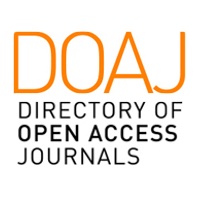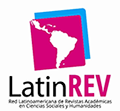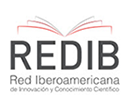Formative diary: social science students and their training process
DOI:
https://doi.org/10.31639/rbpfp.v13i27.488Keywords:
Training Diary; Teacher Formation; Reflective Training. Self-training.Abstract
His article aims the reflection on teacher education from the alternative methodological “Diário Formativo” (training diary), which was developed with undergraduate students in social sciences at the Universidade Federal do Rio Grande do Norte - UFRN, during their extension course, called “Teacher training and profession in social sciences: theoretical-methodological perspectives and the challenges of practice ”, realized in 2019. Thus, we list as specific objectives: to problematize the diary training as a possible methodological alternative to the process of training and self-training; contextualize the research subjects; signalize preliminary reflections about writing the training diaries. To develop a reflection about the objectives, we opted for a qualitative methodology, with theoretical review based on Ardoino (1998); Barbosa (1998; 2000; 2008); Barbosa and Hess (2010); Hess and Weigand (2006), among others, and partial analysis of training diary of students participating in the research. For analysis, we based on a perspective multi-referential from Bardin (2010) with content analysis, in which it was possible to point: the relevance of building self-writing alternatives; the promotion of a autonomous, critical and reflective training; and self-training that allows to the subject to perceive himself in the formative process and transform his actions in his relationship with daily life.
Downloads
References
BARBOSA, J. G. Educação para a formação de autores – cidadãos. In:_ BARBOSA, J. G. (Coord.). Multirreferencialidade nas ciências e na educação. São Carlos: Editora da UFSCar, 1998. p. 7-13.
BARBOSA, J. G; HESS, Hemi. O Diário de pesquisa: O estudante universitário e seu processo formativo. Brasília: Liberlivro, 2010.
BARBOSA, Joaquim Gonçalves. Apresentação. In: __ BARBOSA, J. G; HESS, Hemi. O Diário de pesquisa: O estudante universitário e seu processo formativo. Brasília: Liberlivro, 2010. p. 15-20.
BARBOSA, Joaquim Gonçalves (Org.). Autores cidadãos: a sala de aula na perspectiva multirreferencial. São Carlos/São Bernardo: EdUFScar/EdUFSMESP, 2000.
BARDIN, Laurence. Análise de conteúdo. São Paulo: Edicões 70, 2010.
BERGER, Peter L.; LUCKMANN, Thomas. A construção social da realidade: tratado de sociologia do conhecimento. 34 ed. Petrópolis, RJ: Vozes, 2012.
BORBA, Sérgio da Costa. Aspectos do conceito de multirreferencialidade nas ciências e nos espaços de formação. In: ___ BARBOSA, J. G. (Org). Reflexões em torno da abordagem multirreferencial. São Carlos: Editora da UFSCar, 1998. p. 11-19.
CANDAU, Vera Maria (org.). Reinventar a Escola. Petrópolis/RJ: Vozes, 2013.
FORMIGA, Maria das Graças Freire; BARBOSA, Joaquim Gonçalves. Jornal de Pesquisa e a quebra de resistência à escrita. In:_ BARBOSA, Joaquim Gonçalves. Cadernos de Reflexão e Debates. São Bernardo do Campo: Marília Claret Geraes Duran, abr. 2006. p. 52-65.
HESS, Remi; WEIGAND, Gabriele. A escrita implicada. In:_ BARBOSA, Joaquim Gonçalves. Cadernos de Reflexão e Debates. São Bernardo do Campo: Marília Claret Geraes Duran, abr. 2006. p. 14-25.
LAHIRE, Bernard. Patrimónios individuais de disposições: para uma sociologia à escala individual. Sociologia, problemas e práticas, n.º 49, 2005, p. 11-42
MELO, Elda Silva do Nascimento. Campo social e representação social da formação docente: o olhar dos agentes. Natal, RN, 2005. Dissertação (Mestrado) – Universidade Federal do Rio Grande do Norte. Centro de Ciências Sociais Aplicadas. Programa de Pós Graduação em Educação.
MORAIS, Erivania Melo de. Encontros reflexivos dialogais (ERD): Um recurso possível nas ciências humanas e sociais. Educação & Linguagem. v. 22, n. 2. p. 193-206, jul.-dez. 2019.
POLLAK, Michael. Memória e Identidade social. In: Estudos Históricos, Rio de Janeiro, vol. 5, n. 10, 1992, p. 200-212.
Downloads
Published
How to Cite
Issue
Section
License
Copyright belongs exclusively to the authors. The license rights used by the journal are the Creative Commons Attribution-NonCommercial 4.0 International (CC BY-NC-SA 4.0) license: sharing (copying and distribution of material in any medium or format) and adaptation (remixing), transformation and creation of material from the content are allowed.































